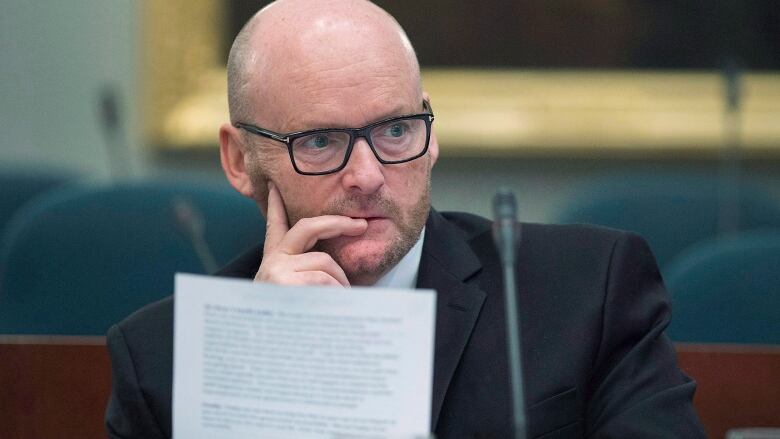Auditor general says B.C.'s surplus should have been $6.5B higher
Audit office has longstanding concerns about B.C.'s accounting it says should 'not be taken lightly'

British Columbia's auditor general has raised doubts about the accuracy of the province's public accounts, saying the $1.3-billion surplus announced by the government this week should have been about six times bigger.
The audit office says in a news release that its qualified opinion is "unusual and should not be taken lightly.''
Auditor general Michael Pickup's office says there were three departures from generally accepted accounting principles in the books that were released Tuesday, including the way B.C. records payments from other governments and non-government sources.
It says if the financial statements followed Canadian Public Sector Accounting Standards, the 2021-22 surplus would have been $6.48 billion higher, and liabilities would have been lower by the same amount.
The office says a second problem meant there were incomplete disclosures of future expenditures, resulting in the understatement of contractual obligations of $708 million in 2023 and $315 million in 2024.
The third issue relates to the B.C. First Nations Gaming Revenue Sharing Agreement, resulting in what the audit office says is a $91-million understatement of both revenues and expenses from the deal.
Pickup says in the news release that the government's method of accounting in relation to the gaming agreement "lacks transparency.''
"It does not accurately reflect how they've structured the agreement and the underlying transaction,'' says Pickup.
Pickup says grants from the federal government, should be recorded as revenue rather than deferred revenue — an adjustment that would account for the estimated $6.5-billion surplus.
The Finance Ministry, however, says it records the figures that way for restricted grants that cover multiple years so that the reported revenue will better reflect its allocation over time.
Long-standing concerns with B.C. budgeting
Pickup's office has had long-standing concerns with the way B.C. does its books, particularly in the way that funding for capital projects is reflected.
In 2021, Pickup outlined what he described as a nine-year accounting difference of opinion his office has with B.C. over the way federal funds for capital projects are added to the province's annual budget totals.
At the time, he said the federal money B.C. gets for projects like bridges and highways should be recorded as revenue under generally accepted accounting principles, but B.C. reports the funds in smaller amounts that are calculated over the life of a project.
He also said the budget amount has been growing since 2011-12, when the office of the auditor general first raised the issue.
Opposition parties critical of spending priorities
On Tuesday, Finance Minister Selina Robinson announced an "unexpected surplus" after forecasting a deficit of $9.7 billion.
The economy "reopened faster and grew at a stronger rate'' than anyone anticipated, she said. "Revenues improved over the year as the economy recovered and expenses increased as government delivered further pandemic recovery programs.''
Robinson said the government was preparing to introduce initiatives next week to address cost-of-living measures.
"We're going to be doing more of that,'' said Robinson. "We can target the right people.''

But Opposition B.C. Liberal finance critic Peter Milobar said the government should have acted more quickly to offer relief to people in B.C.
The New Democrats knew last spring their budget was heading for a surplus but waited until the late summer to announce assistance plans, he said.
"We've been calling for relief since March,'' said Milobar on Tuesday, adding the Liberals proposed temporarily suspending gas taxes, speeding up climate action rebate payments and asking the government to deliver on its past election promise of a $400 rent rebate.
"These are measures that should have been introduced,'' he said.
"We've been told something will happen next week. It shouldn't have taken five months.''
Green Leader Sonia Furstenau said the government had been building a budget surplus while one million people in B.C. were without a family doctor, and ambulance services faced delays or were unavailable.
"We have so many crises in this province right now, this is not a time for the government to pat itself on the back because of a surplus,'' she said.